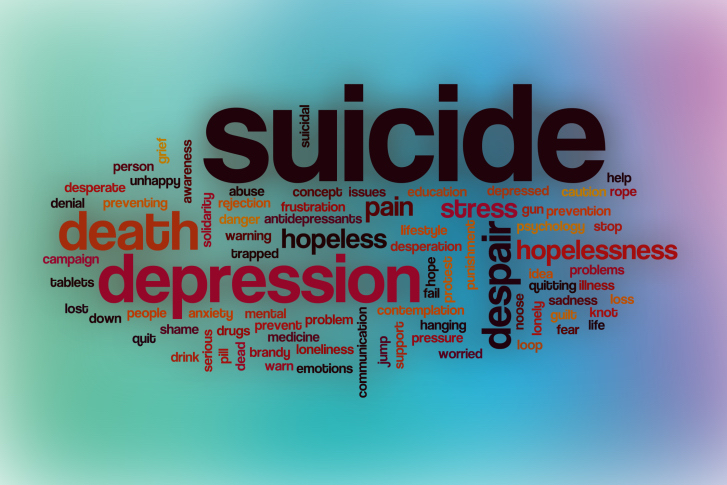
Talking to someone about can help you heal and move on more quickly.
Experiencing the death of a loved one comes with unimaginable pain. This pain is often multiplied when the loved one chose to take his or her own life. You are likely feeling a wide range of emotions, and you are probably having a difficult time processing them. While this is not something that is easy to overcome, and a pain you will likely deal with forever, there are some things you can do to help process these emotions.
Don't Blame Yourself
Whether this person was somebody you saw daily or someone you hadn't spoken with in years, it is crucial to realize this is not your fault. Suicides are almost always unpredictable, and oftentimes, no one saw it coming. You might be wondering how you could have missed the signs. However, it's important to note there aren't often obvious signs. Many people struggle with depression for years but do a good job of hiding it on the outside. Perhaps the person you knew was a great jokester who always had everyone rolling on the floor laughing. Maybe he or she was the person who was always there when someone was going through a hard time. There is no specific formula for suicide, and while there are sometimes risk factors, there are often no warning signs that it will happen.
Even if there were warning signs, it may have been hard to recognize them. In fact, many non-suicidal people experience some of these warning signs at some time or another, including:
- Suffering from anxiety
- Going through a hard time
- Having trouble sleeping
These symptoms are so general, it can be almost impossible to predict whether or not the person is suicidal.
Let Go of the Guilt
In addition to wondering how you didn't see it coming, you may also feel like you didn't do enough to stop the person from feeling the way he or she did. You might feel like you didn't talk to him or her enough, or you might feel like you didn't reach out enough to your loved one to let him or her know how much he or she is loved. However, it's important to realize people who commit suicide are facing an internal battle, and oftentimes, there's nothing anyone can do to stop it.
Try Not To Be Angry
Another common emotion when dealing with the suicide of a loved one is feeling angry he or she gave up on life. It's an understandable emotion, but it helps no one. The person who did this was facing a battle that is hard for anyone on the outside to understand. Also, it's important to remember anger does nothing but hurt you and those around you. Being angry isn't going to bring your loved one back, but it does have the ability to isolate your family. Try to process these emotions in private or with a neutral third party who did not know the person who passed away. This can be a counselor, a church member, or a friend. This can help you get the feelings out without hurting someone else who is processing the loss as well.
Take Care of Yourself
It's easy to neglect yourself physically when you are going through a loss. However, it's important to do everything you can do to take care of yourself. Make sure you are eating regularly, getting enough sleep, and getting some exercise. Doing things like sleeping regularly might seem impossible, but do the best you can. The physical and the emotional are very closely connected, so good physical health can help you with the grieving process.
If you find you are going through a hard time dealing with your loss, don't be afraid to seek help. Talking to someone about your loss can help you heal and move on more quickly.
Add Your Comment